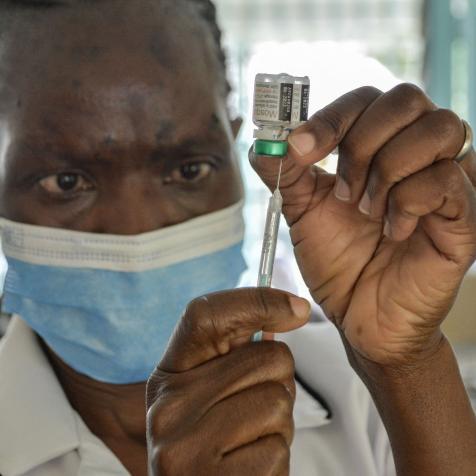
Chris Clor
The COVID-19 Vaccine Race
The development of a vaccine for COVID-19 has been a global all hands on deck initiative since the Coronavirus pandemic took hold of the world in early 2020. Recently two pharmaceutical giants-Pfizer and Moderna- have announced successful ongoing trials.
Updated: November 18, 2020
This week has brought big news in regards to COVID-19 vaccine development. Here is what there is to know about these major breakthroughs in the fight against COVID-19.
The Major Players
On November 9, Pfizer and their partner BioNTech released just enough information to get the public excited about the potential of a vaccine that in trial is about 90% effective. Then, on November 18, more information was announced about this study, saying that it is 95% effective and is seeing emergency FDA approval to produce as much as 50 million doses by the end of this year, and 1.3 billion by the end of 2021.
The light at the end of the tunnel continued to shine when another company made an announcement on November 16. Moderna announced that in their blind trial was 94.5% effective.
Infectious disease expert Dr. Anthony Fauci was encouraged by the numbers that he saw coming out of Pfizer and Moderna, “I had been saying I would be satisfied with a 75% effective vaccine. Aspirationally, you would like to see 90, 95%, but I wasn’t expecting it. I thought we’d be good, but 94.5% is very impressive." he stated in an interview.
The Vaccine Facts
There are many other vaccine trials occurring in the marketplace, but these two are similar in one major way-- they are both mRNA vaccines. In very simple terms, a small amount of genetic material mimicking the spike protein of the coronavirus is injected to the patient via the vaccine. This introduction allows cells to produce millions of copies of the protein. These fragments kick the immune system into gear and produce antibodies to the virus proteins.
It must be noted that there are currently no mRNA vaccines approved for use on humans.
Both vaccines are given in two doses, the Pfizer vaccine is given over three weeks, and the Moderna doses are given four weeks apart.
The Challenges

volschenkh,volschenkh,volschenkh
As the FDA gets involved and trials journey their way towards approval for the masses, there are a lot of challenges with these vaccines. As was noted above, the type of vaccine in question is revolutionary, but relatively untested for public medical use. Beyond that, both of these vaccines need to be kept at extraordinarily cold temperatures. The Pfizer vaccine must be kept at -70 degrees Celsius, and the Moderna vaccine is to be kept at a slightly more reasonable -20 degrees Celsius. This type of vaccine must be kept cold due to the fragility of the mRNA. These temperatures make it harder to transport and store the vaccine outside of advanced medical facilities. However, these infrastructure problems can be solved financially.
What's Next?
Both Pfizer and Moderna will continue to collect information as their studies grow towards the goal of getting this vaccine to the public. There are many phases of approval before this vaccine is widely available, but the outcome of these trials has lead to optimism in the field. Some say that it is possible that the vaccine will be available to some groups by the end of the year.
The Update
The update from Pfizer and BioNTech came with a flood of other information. In their double-blind study of 44,000 people, half of those people got the vaccines and half got the saline placebo. Out of those people 170 people got COVID-19, 162 of which were from the placebo group. This is great news along with the fact that the side effects were very minor, with fatigue as the most common complaint.


















